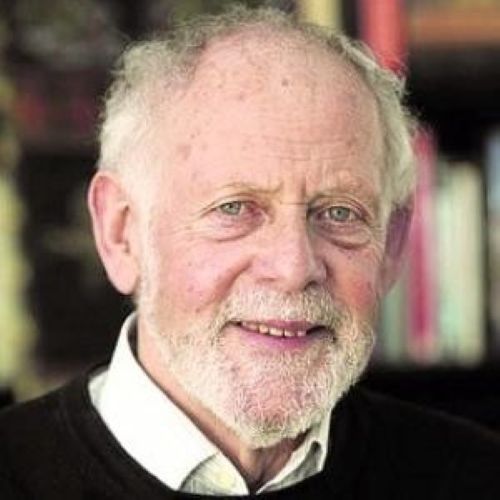Barry Cunliffe
Introduction
Barry Cunliffe is one of the most respected voices in European archaeology, renowned for his groundbreaking interpretations of prehistoric societies and their mythologies. His academic work has profoundly influenced how scholars and enthusiasts alike perceive the ancient past, especially in relation to Iron Age Europe and Celtic traditions. For over five decades, Cunliffe has combined rigorous fieldwork with interdisciplinary research, crafting narratives that illuminate the social, cultural, and spiritual lives of ancient peoples. His ability to interweave archaeological data with mythological and historical insights has set new standards in archaeological scholarship.
Area of Expertise
Barry Cunliffe’s areas of specialization span a wide breadth of European prehistory, with a strong emphasis on Celtic identity, Iron Age societies, and the cultural significance of maritime interactions. He has led major excavations across Britain and continental Europe, examining how ancient communities organized themselves socially and spiritually. His studies of Iron Age hillforts, particularly Danebury, brought fresh insights into community life, defense, and ritual practice in ancient Britain. Moreover, his work on Atlantic Europe argues for a coastal and maritime dimension to Celtic origins, challenging older, land-based models of cultural diffusion. Cunliffe approaches archaeology with a holistic lens, incorporating methods from anthropology, linguistics, and geography to understand how myth and material culture shape one another.
Books & Publications
Barry Cunliffe’s extensive bibliography showcases his enduring commitment to both scholarly research and public education. His book The Ancient Celts, originally published in 1997 and later revised, remains a seminal text in Celtic studies, offering a richly detailed picture of Celtic belief systems, social structures, and art. Another landmark work, Europe Between the Oceans: 9000 BC–AD 1000, presents a sweeping history of European development through the lens of geography and cultural interaction.
Titles such as Druids: A Very Short Introduction and Facing the Ocean distill complex academic concepts for broader audiences, while By Steppe, Desert, and Ocean explores Eurasian networks and their mythological legacies. In The Extraordinary Voyage of Pytheas the Greek, Cunliffe delves into early exploration narratives and their myth-making functions. Most recently, Bretons and Britons: The Fight for Identity examines the long arc of cultural resistance and adaptation in Celtic regions, offering a nuanced interpretation of identity through myth and archaeology.
His editorial work for volumes like The Oxford Handbook of Archaeology and The Oxford Illustrated History of Prehistoric Europe further highlights his influence in shaping academic discourse across multiple disciplines.
Research & Contributions
Cunliffe’s fieldwork and theoretical insights have altered the landscape of European archaeological thought. At Danebury, he uncovered compelling evidence of ritual activity, including structured deposition of objects and symbolic artifacts that suggest a deep-rooted mythological worldview among Iron Age Britons. His excavation at Fishbourne Roman Palace revealed intricate cultural blending, showcasing how Roman and indigenous beliefs coexisted and evolved.
One of Cunliffe’s most transformative contributions has been his reinterpretation of Celtic origins. Contrary to the long-held belief that Celtic culture stemmed from Central Europe, Cunliffe argued for an Atlantic genesis, supported by archaeological patterns and linguistic studies. This maritime perspective not only reframed Celtic migration theories but also emphasized the importance of sea travel and coastal interaction in spreading myths, technologies, and ideologies.
His research into seafaring societies has also opened new avenues in the study of mythology, illustrating how narratives traveled alongside trade routes, evolving with each encounter. By analyzing settlement patterns, burial rites, and symbolic art, he uncovers the spiritual dimensions of ancient life, linking the tangible remains of past societies to the intangible world of myth.
Cunliffe’s interdisciplinary methodology has become a model for modern archaeology. Whether it’s integrating radiocarbon dating with geographic information systems (GIS), or comparing mythological texts with material finds, his approach always seeks to enrich the archaeological narrative with broader cultural meaning.
Awards & Recognitions
Barry Cunliffe’s illustrious career has earned him numerous awards and honors that reflect his impact on archaeology and cultural heritage. He was knighted in 2006, becoming a Knight Bachelor in recognition of his service to archaeology. Prior to that, he was appointed Commander of the Order of the British Empire (CBE), a distinction that acknowledges his role in preserving and interpreting Britain’s ancient past.
He is a Fellow of the British Academy, an honor given to only the most distinguished scholars in the humanities and social sciences. Cunliffe has also received the Grahame Clark Medal, awarded for exceptional contributions to prehistoric archaeology, and the Wolfson History Prize for his ability to communicate complex historical themes with clarity and depth.
Academic institutions across Europe have awarded him honorary doctorates, acknowledging not only his academic excellence but also his leadership in promoting public understanding of archaeology. He has also held influential roles as President of the Society of Antiquaries, the Council for British Archaeology, and as a Trustee of the British Museum and Commissioner of English Heritage. Through these positions, he has shaped national policy and preservation efforts, ensuring that archaeological research continues to inform our shared cultural legacy.
Social Media Profiles
While Barry Cunliffe does not actively use personal social media accounts for academic discourse, his name frequently appears in discussions within the archaeological community online. References to his work circulate widely on platforms like Twitter (now X), often cited by institutions, scholars, and enthusiasts discussing European prehistory or Celtic archaeology. Although not a digital native, Cunliffe’s influence reaches into digital spaces through educational resources, online lectures, and discussions of his books and research.
Bibliographic Sources
British Academy. (n.d.). Professor Sir Barry Cunliffe FBA. Retrieved from https://www.thebritishacademy.ac.uk/fellows/barry-cunliffe-FBA/
Cunliffe, B. (2001). Facing the Ocean: The Atlantic and Its Peoples. Oxford University Press.
Cunliffe, B. (2003). The Celts: A Very Short Introduction. Oxford University Press.
Cunliffe, B. (2017). On the Ocean: The Mediterranean and the Atlantic from Prehistory to AD 1500. Oxford University Press.
Cunliffe, B. (2018). The Ancient Celts (2nd ed.). Oxford University Press.
Cunliffe, B. (2019). The Scythians: Nomad Warriors of the Steppe. Oxford University Press.
Cunliffe, B. (2020). Britain Begins: Debunking the Myth of Celtic Invasions. Oxford University Press.
Nautical Archaeology Society. (2013). Keith Muckelroy Memorial Award. https://www.nauticalarchaeologysociety.org/keith-muckelroy-award
University College Dublin. (2016). Honorary Conferring of Doctorate of Celtic Studies to Barry Cunliffe.
Oxford Alumni. (2023). Sir Barry Cunliffe. https://www.alumni.ox.ac.uk/article/sir-barry-cunliffe




